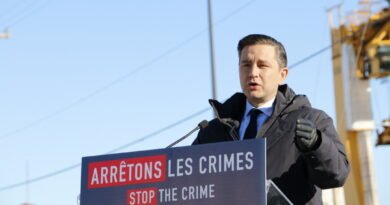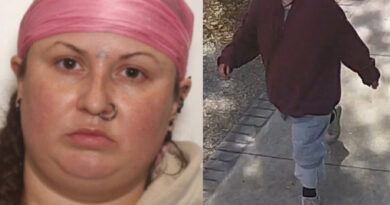Syrian Rebel-Led Government Assumes Control as Hunt for Assad’s Torturers Commences
Hope of finding thousands of political prisoners in underground cells at the notorious Saydnaya prison has diminished. Syrian Prime Minister, appointed by ousted President Bashar al-Assad, has officially handed over power to a so-called salvation government led by rebel factions in north-west Syria.
Mohammed Jalali, appointed by Assad in September, met with Abu Mohammed al-Golani, the leader of Hayat Tahrir al-Sham (HTS) on Monday to discuss the transition. HTS, initially affiliated with al-Qaeda and designated as a terrorist organization by the US, UK, and Turkey, led an offensive capturing Aleppo, Hama, and Homs, leading to the collapse of the Assad regime on Dec. 7.
Assad fled to Moscow and has been given asylum by his ally, Russian President Vladimir Putin. Most of his troops are believed to have gone underground or crossed the border into Iraq.
Later on Tuesday, HTS is expected to reveal former Assad regime officials responsible for torture and labeled as war criminals.
Hope of finding thousands of political prisoners in underground cells at the notorious Saydnaya prison faded on Monday, with the growing realization they had probably been executed or died in jail.
‘Where Is Everyone?’
Outside the prison, Ghada Assad broke down in tears after finding no trace of her missing brother. She asked a journalist, “Where is everyone? Where are everyone’s children? Where are they?”
Assad had traveled from Damascus and expressed her sorrow over her missing brother. She said, “My heart has been burned over my brother. For 13 years, I kept looking for him.”
In 2011, during the Arab Spring, people rose against the regime, but Assad responded brutally with the support of Russia, Iran, and Hezbollah, leading to the destruction of cities like Aleppo, capturing them, and imprisoning suspected disloyal citizens.
Facing economic sanctions, Assad is suspected to have sustained his regime through involvement in narcotics production and trafficking, particularly in captagon, a highly addictive amphetamine.
Reports have emerged on social media following the regime’s collapse showing seizures of captagon and luxurious properties allegedly funded by the trade. Some areas are returning to normalcy in Damascus and other cities.
Syria’s banks reopened on Tuesday, and the oil ministry called employees in the sector to return to work.
Clashes in Manbij
Two groups, the Turkish-backed Syrian National Army (SNA) and US-backed Syrian Democratic Forces (SDF), clashed in Manbij with conflicting reports on social media regarding the situation.
Israel has denied exploiting the regime’s fall to launch an incursion into Syrian territory, stating they took limited measures for security protection.
UN’s special envoy in Syria, Geir Pedersen, urged Israel to cease movements and bombardments into Syria. Israel denied entering Syrian territory beyond the buffer zone with the Israeli-occupied Golan Heights.
Israel seized abandoned outposts on the Syrian side of Mount Hermon, overlooking Damascus. Israeli Prime Minister Benjamin Netanyahu welcomed Assad’s fall, focusing on Israel’s security.
Egypt and Saudi Arabia accused Israel of violating international law.

A woman examines the cells at the infamous Saydnaya military prison, just north of Damascus, Syria, on Dec. 9, 2024. AP Photo/Hussein Malla
Iran’s government called for respecting Syria’s territorial integrity. The Iranian Revolutionary Guards commander, Hossein Salami, stated no Iranian forces remained in Syria.
Hamas Congratulates Syrians
Hamas congratulated the Syrian people for realizing their aspirations for freedom and justice. Hamas, allied with Iran and Hezbollah, pledged to support Syria and respect its political choices. It expressed hope for Syria to continue supporting Palestinian rights.
The Assad regime historically supported Palestinian terrorists, including the Popular Front for the Liberation of Palestine-General Command (PFLP-GC).
Associated Press and Reuters contributed to this report.




